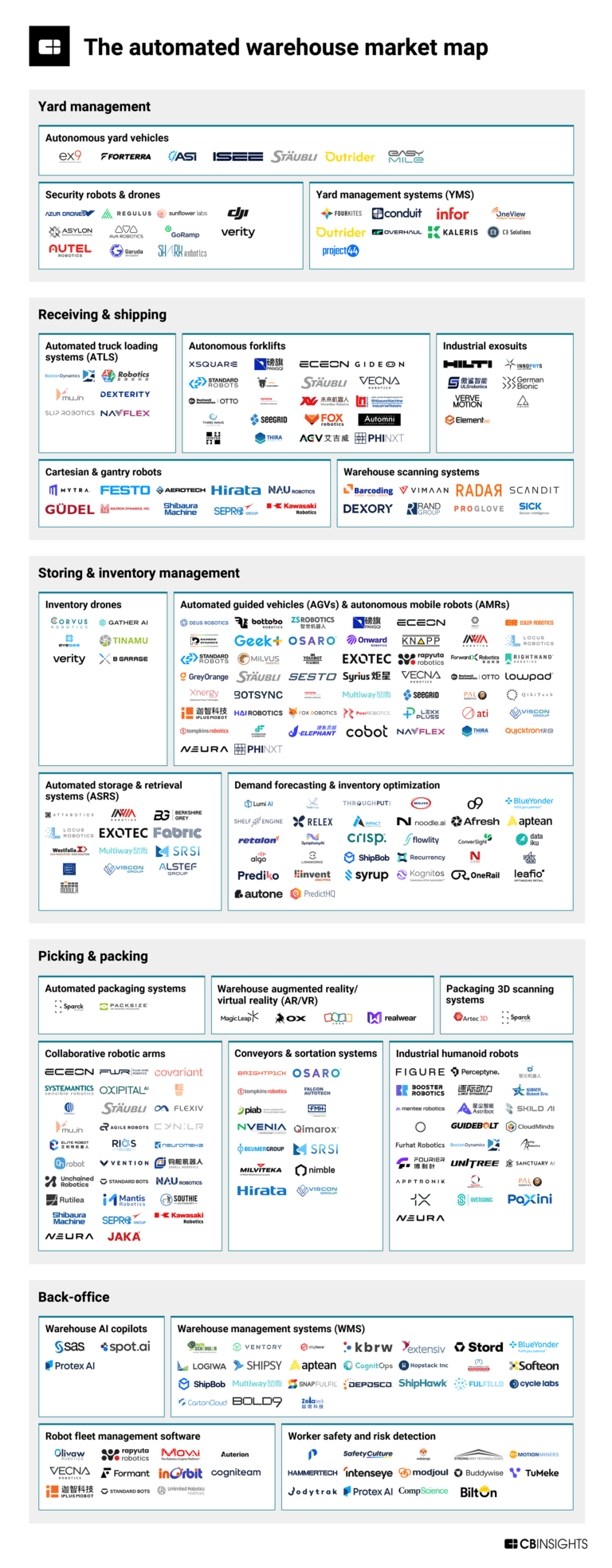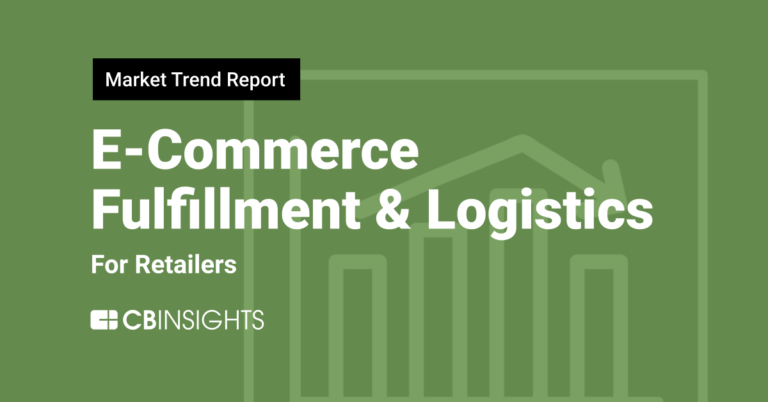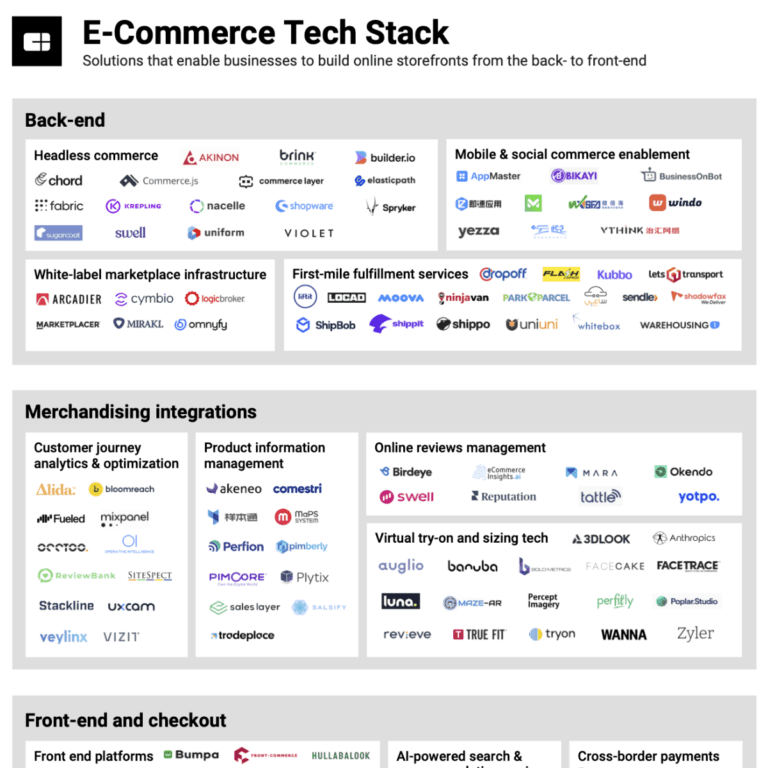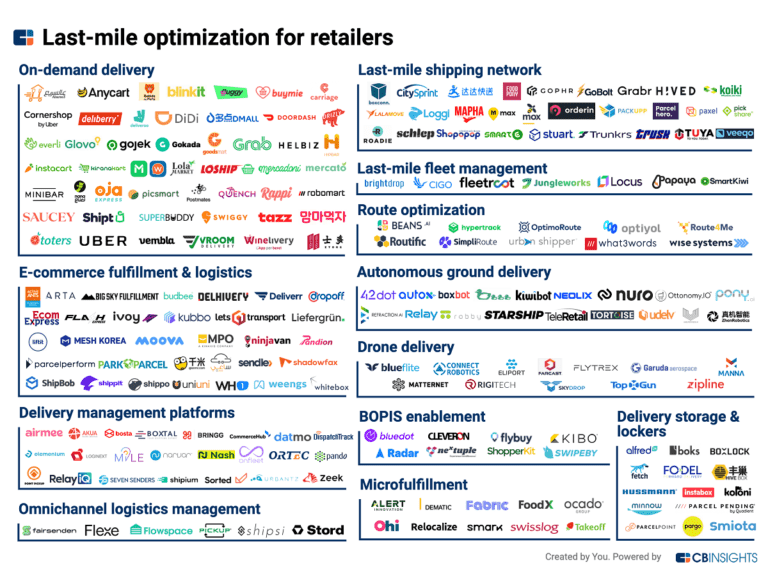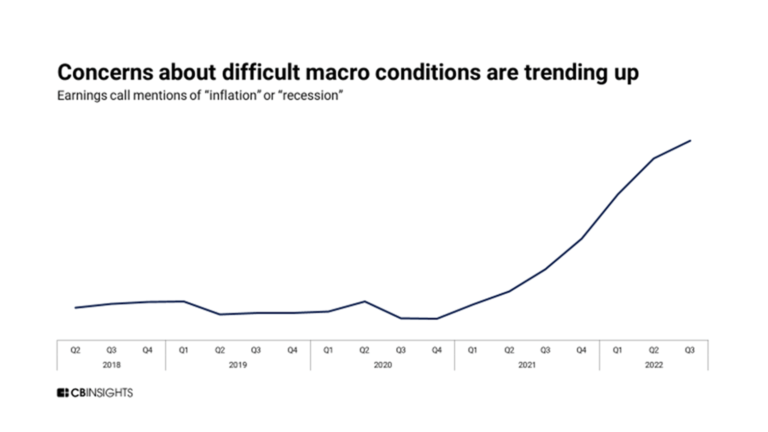
ShipBob
Founded Year
2014Stage
Series E | AliveTotal Raised
$331.1MValuation
$0000Last Raised
$200M | 4 yrs agoRevenue
$0000Mosaic Score The Mosaic Score is an algorithm that measures the overall financial health and market potential of private companies.
-20 points in the past 30 days
About ShipBob
ShipBob is a provider of e-commerce fulfillment solutions within the logistics and supply chain industry. The company offers services such as inventory distribution, order fulfillment, warehouse management, and global shipping options to assist the supply chain for online businesses. ShipBob primarily serves the e-commerce sector, offering solutions for delivery and inventory management. It was founded in 2014 and is based in Chicago, Illinois.
Loading...
ShipBob's Product Videos

_thumbnail.png?w=3840)
ESPs containing ShipBob
The ESP matrix leverages data and analyst insight to identify and rank leading companies in a given technology landscape.
The e-commerce fulfillment & logistics market offers last-mile shipping, logistics, and fulfillment solutions to e-commerce and omnichannel businesses. It involves the efficient management of inventory, order processing, picking, packing, and last-mile delivery. The market is driven by the rapid growth of e-commerce, with businesses striving to meet customer expectations for fast and reliable orde…
ShipBob named as Outperformer among 15 other companies, including Amazon, FedEx, and United Parcel Service.
ShipBob's Products & Differentiators
ShipBob
A global omnichannel fulfillment solution
Loading...
Research containing ShipBob
Get data-driven expert analysis from the CB Insights Intelligence Unit.
CB Insights Intelligence Analysts have mentioned ShipBob in 6 CB Insights research briefs, most recently on Feb 13, 2025.
Expert Collections containing ShipBob
Expert Collections are analyst-curated lists that highlight the companies you need to know in the most important technology spaces.
ShipBob is included in 5 Expert Collections, including Supply Chain & Logistics Tech.
Supply Chain & Logistics Tech
5,936 items
Companies offering technology-driven solutions that serve the supply chain & logistics space (e.g. shipping, inventory mgmt, last mile, trucking).
Unicorns- Billion Dollar Startups
1,276 items
Retail Tech 100
100 items
The most promising B2B tech startups transforming the retail industry.
E-Commerce
217 items
Tech IPO Pipeline
257 items
The tech companies we think could hit the public markets next, according to CB Insights data.
Latest ShipBob News
Jul 7, 2025
The 2025 U.S. tariffs, especially on Chinese imports, have disrupted supply chains, hiking expenses and challenging profitability. During this time of economic uncertainty, supply chain digitization and diversification are critical to small business owners as they boost efficiency, reduce costs, and enable resilience in adapting to trade disruptions. Using cloud-based SaaS solutions across the Internet of Things (IoT), AI, and cloud computing allows SMBs to manage a diversified supply chain that reduces the impact of changing tariffs and economic changes. What Is Supply Chain Digitization? Supply chain digitization integrates cloud-based technologies into supply chain management to streamline operations, enhance visibility, and enable data-driven decisions. Unlike traditional supply chains reliant on manual processes, digitized systems automate and optimize key functions. These technologies include: Inventory of Things : Tracks inventory and shipments in real-time. ShipBob offers IoT solutions that integrate with its Warehouse Management solutions, with cloud-based tracking for SMBs, enabling faster fulfillment, with better accuracy, and real-time shipment and returns monitoring. AI and Machine Learning : Powers demand forecasting and inventory optimization. Cogsy provides AI-driven tools for eCommerce, including demand forecasting and planning tailored for small online retailers. Cloud-based SaaS applications : Solutions like Shopify, ShipBob, and Cogsy work together via the cloud, allowing instant access across all your locations, seamlessly integrating, and providing real-time insights into your online business. For small eCommerce brands, digitization transforms supply chain management into a competitive edge. According to Flowspace , real-time inventory visibility can prevent stockouts and overstocking, saving significant costs. The Impact of U.S. Tariff Changes on Small Businesses Supply Chains U.S. tariff policies targeting Chinese imports have created significant hurdles for small eCommerce brands. Since President Trump's second inauguration, tariffs on Chinese imports have ranged from 20% on two-thirds of imports to 145% on most Chinese goods, and are currently at approximately 50% on all Chinese imports. These tariffs impact over $400 billion in goods imported from China annually, hitting key eCommerce sectors. MORE FOR YOU Tesla CEO Elon Musk Confirms Wild Rumors As $37 Trillion ‘Emergency' Predicted To Blow Up Bitcoin Price Texas Flood Live Updates: White House Says Blaming Trump For Flooding A ‘Depraved Lie' As Death Toll Hits 94 Student Loan Forgiveness Payment Counts Halted By Department Of Education On July 2, the Trump Administration announced a new tariff policy with Vietnam , placing a 20% tariff on Vietnamese products and a 40% tariff on products deemed to be trans-shipments (targeting Chinese goods being rerouted through third-party countries in order to avoid the higher Chinese tariff rates). These tariffs pose significant challenges, including: Increased Costs : Higher tariffs raise import costs, squeezing margins or forcing price hikes that may deter customers and reduce sales. Supply Chain Disruptions : Shifting from Chinese suppliers is resource-intensive, as SMBs often lack the means to onboard new suppliers quickly. Economic Uncertainty : These new tariffs may cost U.S. households between $1,100 and $1,700 per year, according to the Yale Budget Lab , and will likely drive households to seek substitutions based on increased prices. Unlike large corporations, small businesses often rely on a limited supplier base, making them vulnerable to these disruptions. Four Ways Supply Chain Digitization Addresses Tariff Challenges Digitization offers SMBs cloud-based tools to navigate tariffs and trade disruptions. Here are four key ways digital solutions help, with SMB-focused SaaS providers driving impact: Enabling Supplier Diversification Challenge : Reliance on Chinese suppliers is unsustainable due to high tariffs. Solution : Digital supplier platforms connect SMBs with global suppliers in low-tariff regions like Vietnam or Mexico. Gembah is an SMB-friendly platform for sourcing suppliers worldwide, reducing dependence on high-tariff countries. Impact : Diversified suppliers lower tariff costs and enhance resilience, maintaining competitive pricing. Optimizing Inventory to Manage Costs Challenge : Tariffs increase the cost of holding inventory, especially for high-duty goods. Solution : Cloud-based inventory management software, like ShipBob, manages stock levels and helps prevent overstocking of tariffed goods. Impact : Reduced inventory costs and fewer stockouts improve profitability and cash flow. Streamlining Logistics for Efficiency Challenge : Tariffs and supplier shifts cause delays and higher shipping costs. Solution : Logistics software optimizes shipping routes and reduces transit times. ShipStation provides cloud-based logistics solutions for SMBs, automating shipping and tracking in real-time. Impact : Streamlined logistics improve delivery times and offset tariff-related expenses, boosting customer satisfaction. Enhancing Transparency and Compliance Challenge : Complex tariff regulations are tough for resource-constrained SMBs. Solution : Compliance software ensures adherence to trade rules. Avalara offers cloud-based tax and duty calculation tools, simplifying cross-border compliance for SMBs. Impact : Enhanced transparency and compliance build trust with customers and regulators, minimizing risks. The Role of Geographically Diverse Supply Chains Digitization facilitates geographic supplier diversification, offering SMBs: Reduced Tariff Exposure : Sourcing from low-tariff countries like Vietnam or India lowers costs compared to Chinese suppliers. Given current tariff rates, U.S.-based suppliers may be more cost-effective and have the benefit of no tariffs. Improved Optionality : A diverse supplier base allows quick pivots in response to tariff changes or other supplier-related disruptions. Enhanced Resilience : Geographic diversification mitigates risks from regional issues, ensuring stability. For U.S. retailers, this ensures price competitiveness and supply chain stability. McKinsey , focusing on global trends impacting businesses, highlights how digital supply chains enhance agility, critical for business when addressing volatile trade environments. Netsuite digs deeper into this concept, specifically addressing the capabilities needed by SMBs. Real-World Examples of Supply Chain Digitization in Action Here are examples showcasing how small eCommerce brands leverage SMB-focused SaaS solutions: Supplier Diversification : Use Gembah to build a Mexican supply chain, avoiding high Chinese tariffs. Given Mexico's geographic proximity, lower cost labor pool, real-time supplier data enables cost-effective sourcing with faster supply chain timelines. Inventory Optimization : Employ Cogsy's AI-driven tools to forecast demand. This reduces the stock of tariffed goods by focusing on low-duty alternatives while ensuring maximum demand capture. Or, purchase smaller batches of high-tariffed inventory if you expect tariff rates to decline shortly. Logistics Efficiency : Integrate with ShipStation, ShipHero, or ShipBob to automate shipping, track deliveries in real time, and negotiate better rates, offsetting tariff costs. Improving your operational efficiency will increase margins and give you more flexibility in addressing tariffs. Compliance : Uses Avalara to automate tariff calculations, ensuring compliance and avoiding penalties on international shipments while reducing supply chain delays associated with non-compliant imports. Data-Driven Insights: Comparing Traditional and Digitized Supply Chains Digitized supply chains provide significant advantages over traditional supply chain management approaches. The table below summarizes these benefits: It may seem daunting to implement these small business tools, but you'll find most of these solutions cost between $25 to $500 per month, and your total cost outlay will likely range from $500 to $1,500 per month. Implementing these solutions will save most business owners 10 to 20 hours per month in supply chain management activities. Many of these tools will also automatically alert you to supplier price changes, tariff changes, transportation price changes, and other cost savings opportunities that will allow you to rapidly respond to opportunities to speed up your supply chain while reducing costs that translate into increased profitability. Conclusion Supply chain digitization is a lifeline for small U.S. eCommerce brands facing tariffs and global trade challenges. By leveraging SMB-focused SaaS solutions, small businesses can enhance agility, cut costs, and compete with larger players. As tariffs reshape global trade, digitization is a necessity. With a modest upfront investment of time to deploy these tools, SMBs will enjoy long-term benefits: resilience, profitability, and growth. For U.S.-based retailers, the path forward is clear: digitize to thrive.
ShipBob Frequently Asked Questions (FAQ)
When was ShipBob founded?
ShipBob was founded in 2014.
Where is ShipBob's headquarters?
ShipBob's headquarters is located at 120 North Racine Avenue, Chicago.
What is ShipBob's latest funding round?
ShipBob's latest funding round is Series E.
How much did ShipBob raise?
ShipBob raised a total of $331.1M.
Who are the investors of ShipBob?
Investors of ShipBob include Hyde Park Venture Partners, Bain Capital Ventures, Hyde Park Angels, Menlo Ventures, SoftBank and 11 more.
Who are ShipBob's competitors?
Competitors of ShipBob include Cart.com, Ware2Go, THG Ingenuity, byrd, Hive and 7 more.
What products does ShipBob offer?
ShipBob's products include ShipBob.
Who are ShipBob's customers?
Customers of ShipBob include Touchland, TB12, 100 Thieves, Dossier and The Caker.
Loading...
Compare ShipBob to Competitors

ShipMonk is a third-party logistics provider that offers order fulfillment, inventory management, shipping management, and warehouse management services. The company serves the ecommerce industry, providing solutions for direct-to-consumer, business-to-business, and retail fulfillment needs. It was founded in 2018 and is based in Fort Lauderdale, Florida.
Packsmith is a modern logistics company focused on providing e-commerce logistics solutions. The company offers a suite of services including fulfillment, shipping cost savings, intuitive software for operational management, and expert supply chain consultation to ensure efficient and cost-effective delivery for brands. Packsmith primarily serves the e-commerce industry, offering solutions tailored to the needs of growing brands. It was founded in 2021 and is based in Sacramento, California.
Hive integrates with shops and marketplaces, helping users in booking, freight picking, packing, and delivering orders. The company offers technology managing the whole fulfillment process for e-commerce through proprietary warehouses. Hive helps users' brands grow accelerates delivery and handles returns. It was founded in 2020 and is based in Berlin, Germany.

Flowspace is an e-commerce logistics and fulfillment company that specializes in providing cloud-based software and services for brands. The company offers a suite of tools for inventory management, order management, and network optimization to streamline fulfillment operations. Flowspace primarily serves the e-commerce industry, enabling brands to meet customer expectations for fast and efficient delivery. It was founded in 2017 and is based in Los Angeles, California.

Stord is a commerce enablement platform that provides omnichannel fulfillment and shipping solutions within the logistics and supply chain industry. The company offers software tools, including order management and warehouse management systems, to assist with operations and the pre-purchase and post-delivery consumer experience. Stord serves direct-to-consumer (DTC) and business-to-business (B2B) sectors with a focus on health and beauty, nutrition and supplements, and apparel and accessories. It was founded in 2015 and is based in Atlanta, Georgia.
Everstox focuses on providing B2B and e-commerce logistics solutions in the consumer goods industry. The company offers a range of services, including fulfillment of direct-to-consumer and B2B orders, shipping services, and warehousing services. Its services are primarily targeted towards e-commerce brands and enterprises. It was founded in 2019 and is based in Munich, Germany.
Loading...

